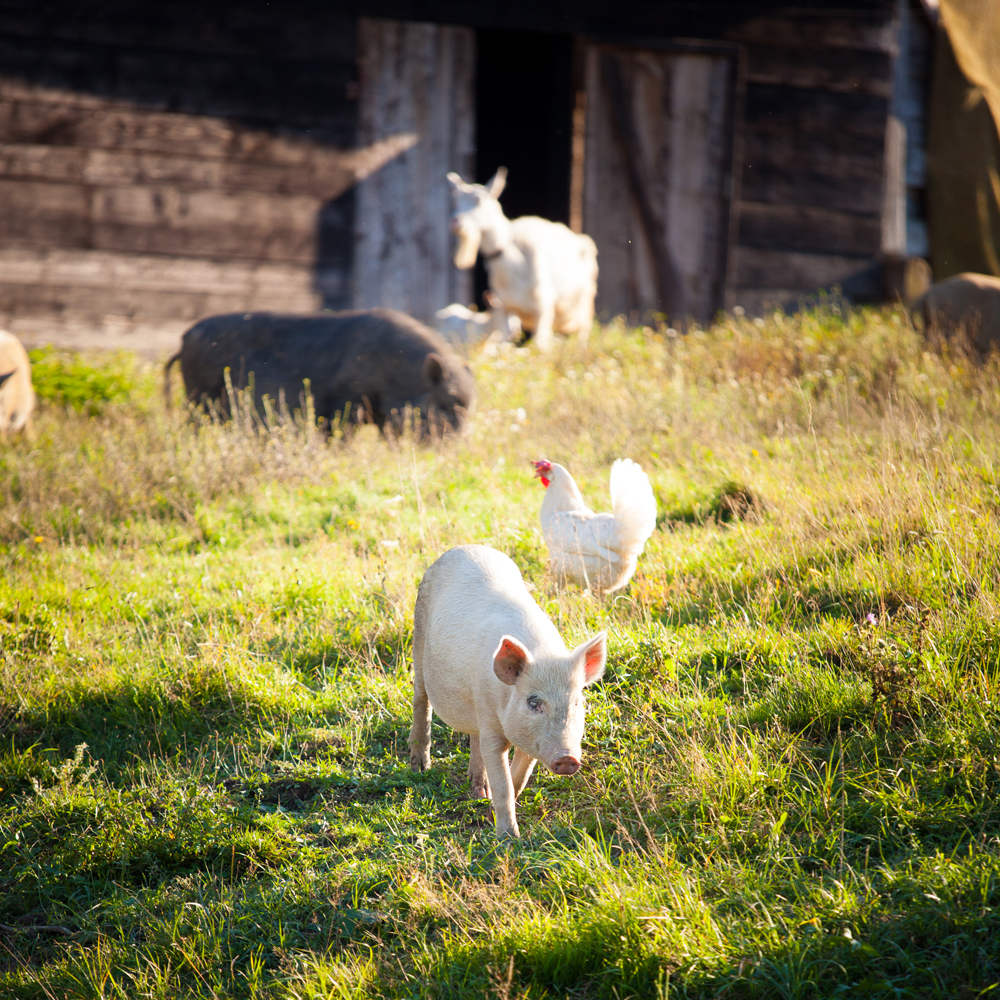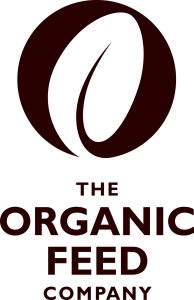Why Go Organic?
 As organic produce grows in popularity, why are more people are choosing to grow, raise and eat organic?
As organic produce grows in popularity, why are more people are choosing to grow, raise and eat organic?
You only need to look down the aisles of any supermarket to see that the demand for organic food has grown considerably over the last few years. What was once limited to a few fruits and vegetables, hidden away amongst the conventionally grown produce, has expanded into almost every line of groceries. Specialist outlets and farm shops have a loyal customer base to which they seem to provide an almost inexhaustible range of organic food. Home producers too are embracing the organic way of life, from growing their own vegetables to producing eggs and meat from their own livestock. This growing desire to grow and eat organic produce is often fuelled not just by personal health reasons, but also by concern for the environment and the impact we as a population have on the planet and its resources.
What is organic?
The word ‘organic’ is defined in law and EU (European Union) regulations apply to the production, labelling and control of all organic products. These rules are strictly regulated by DEFRA approved Control Bodies such as the Soil Association, and all producers must be registered with a control body, comply with their standards and meet specified requirements in order to market their produce as ‘organic’. These stringent regulations apply to all organic produce, whether it is for human or animal consumption; so if you are buying organic produce for your family’s dinner table or feeding your livestock organically with the aim of producing organic milk, eggs or meat, you can rest assured that the same underlying principles and rules of organic farming apply.
Going organic isn’t simply about growing and eating food that hasn’t been treated with chemicals; it is a ‘whole system’ approach to farming and food production. It recognises the close relationship between the soil and the plants and animals that live off it, together with the processes that bring food to the plate. Understanding the core principles of organic farming is key to appreciating the benefits of this approach to producing food.
Organic farming…
- Involves producing food of the highest quality with minimal processing
- Does not use Genetically Modified Organisms (GMOs), chemical fertilizers, pesticides, growth promoters or synthetic colourants and preservatives
- Works with natural systems and cycles through all levels, from the soil to plants and animals
- Protects the soil by encouraging sustainable crop rotation and cultivation techniques as well as the use of recycled nutrients in the form of composted manure and vegetable waste
- Ensures livestock reared organically enjoy the very highest welfare standards of farmed animals as they must be kept and fed as naturally as possible and without the routine use of medication
- Encourages biodiversity and protects sensitive habitats as well as encouraging recycling and minimising pollution and waste by maximising the use of renewable resources
- Promotes the development of ecologically responsible production, processing and distribution chains, helping to support the local economy and reduce the need for excessive transportation of raw materials and produce.
So why go organic?
Organic produce is becoming increasingly more accessible with greater consumer choice providing a healthy, traceable and sustainable alternative. There are many reasons why people choose to go organic; from concerns for their own health and the lives of the animals farmed, to a desire to look after the environment.
Personal Health
Many people are concerned about the rising level of chemicals they are exposed to on a daily basis and believe that the use of some chemicals in food production can be harmful to health. Going organic provides a way to reduce exposure to potentially harmful chemicals from both bought food and homegrown produce. This, along with an increase in food scares over recent years and health concerns relating to processed foods and associated salt, fat and sugar intakes, has led to a belief that organically grown or reared food is healthier and safer. The stringent practices and certification of organic food also applies to organic animal feed, which means that farmers are able to rear their livestock and produce food that is chemical free.
Environmental concerns
Soil is key to organic farming and as its balance can easily be upset by the use of chemicals. The use of natural fertilisers such as manure, rather than artificial alternatives, ensures high nutrient levels and soil ecology are maintained. With regard to weed and pest control, organic farming encourages the use of careful crop rotations rather than the routine use of chemicals. The strict guidelines governing organic farming ensures that any negative impact on the environment from food production is greatly reduced. In addition to this, the less intensive farming methods at the forefront of organic food production mean that wildlife is allowed to flourish. Many believe that organic farming may help to reduce the loss of species which can be caused by the widespread use of chemicals. Bio-diversity is of crucial importance to ensure a stable environment as the loss of species can affect the delicate balance of our planet.
Taste
Many people choose organic food because they believe it tastes better than non-organic. As no artificial growth promoters are used, animals grow at a slower rate, which is believed to make their meat richer in flavour. When it comes to organically fed poultry, natural yolk colourants are used, resulting in the eggs produced having a natural golden yolk which are thought to be richer in taste.
Animal Welfare
The welfare of animals is one of the key principles of organic farming and is a major consideration for many when making dietary choices. In addition, consumer awareness of mass production techniques driven by the media has led many to choose organic as the higher welfare option. All organically-reared animals must:
- Be able to free range (when weather and ground conditions are not harmful to health)
- Have plenty of space (i.e. lower stocking densities) – helping to reduce stress and disease
- Be fed a diet that is as natural as possible and free from genetically modified ingredients
- Not be routinely treated with drugs or vaccines
- Never be given hormones which increase growth or productivity
- Not be produced from cloned animals
Did you know?
- It is a mandatory requirement that any product labelled ‘organic’ is certified by a DEFRA approved control body.
- Genetically Modified material is not permitted in any organic product.
- The UK has some of the most stringent organic regulations in the world.
To find out more about feeding your animals organically call the friendly nutritional helpline on 01362 822 902

